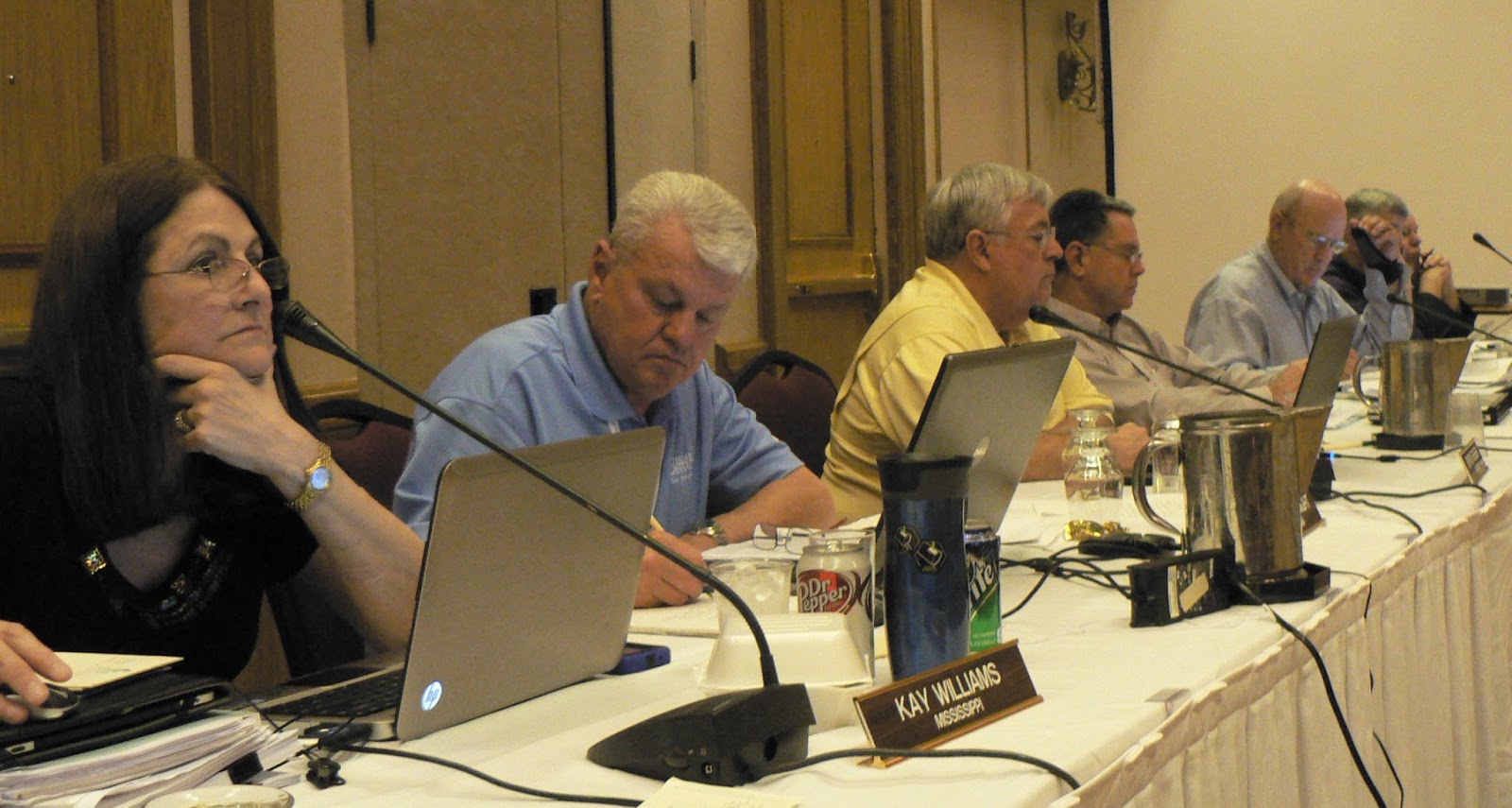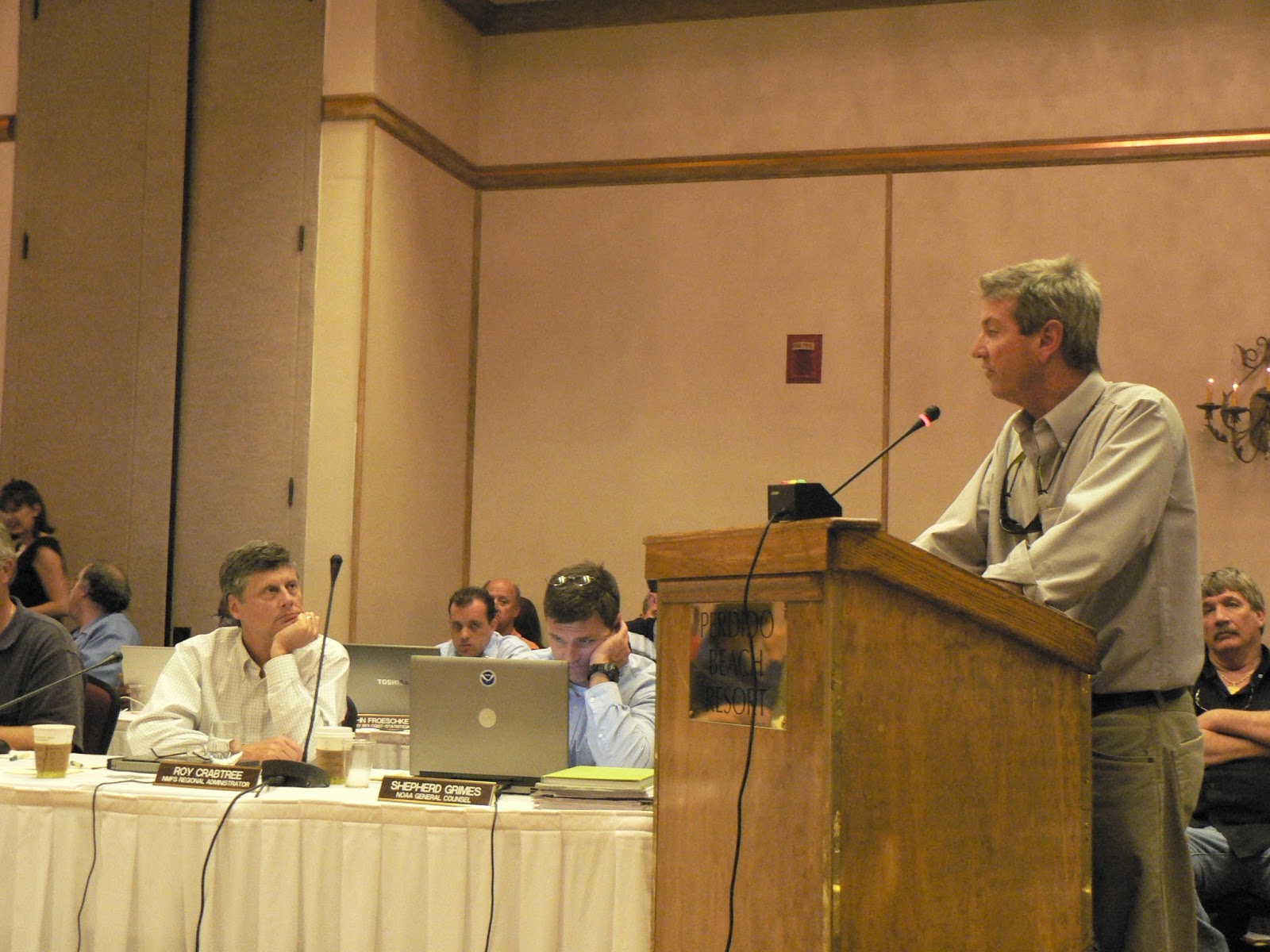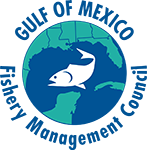 Not take a long walk off a short pier kind of advice but actually
Not take a long walk off a short pier kind of advice but actuallydirectly sharing your knowledge of the fishery with the Council. Would you be interested in reviewing documents and making suggestions before
Council votes on anything? Would you be interested in lending your perspective
to the Council? That is exactly what the Council is asking you to help with.

The Gulf of Mexico Fishery Management Council is responsible
for making decisions on a wide range of fishery management issues. Trapping spiny lobster in South Florida, long
lining for tilefish in deep water, spearing amberjack near oil platforms, and catching
red snapper on a fly rod are just a few examples of the array of fishing
activities that take place in the Councils jurisdiction. While each voting Council member is selected
to serve because they have personal experience, expertise, and interest in the
Gulf fisheries, it is nearly impossible for a single person to be an expert in
all aspects of Gulf of Mexico fishery management.
the expertise of all sorts of people to ensure a well-rounded understanding of each
component of the fishery. Along with encouraging public comment at every step
of the process, the Council relies upon advisory panels and scientific
committees to provide advice on a variety of issues.
and commercial fishermen, for-hire captains, seafood dealers, members of
non-governmental organizations, scientists, and concerned citizens.
the following advisory panels:

· Coastal Migratory Pelagics
·
Coral
·
Data Collection
·
Florida/Alabama Habitat Protection
·
Mississippi/Louisiana Habitat Protection
·
Texas Habitat Protection
·
Outreach and Education
·
Red Drum
·
Red Snapper
·
Reef Fish
·
SEDAR NGO
·
Shrimp
·
Spiny Lobster
Advisory panel positions are unpaid, but travel expenses are
reimbursed.
sociologists, and natural resource attorneys who are knowledgeable about the
technical aspects of the fisheries to serve on the following Scientific and
Statistical Committees:

·
Standing
·
Socioeconomic
·
Coral
·
Mackerel
·
Red Drum
·
Reef Fish
·
Shrimp
·
Spiny Lobster
·
Ecosystems Management
committees meet up to 4 times a year. Appointments last for two years.
scientific committee now is the time to apply. Send us a resume or description of your
qualifications along with a letter that details which panels or committees you’re
interested in.
33607

